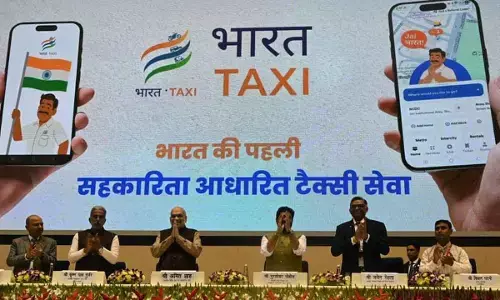Fear of the exam monster

Examinations scare children. The fear of exams exerts enormous pressure on kids. Even parents undergo the trauma of exams for their children. This has more to do with system of teaching, learning and testing the learning skills. As the children brace up for the annual examinations, they realise the burden of curriculum,
A lot is taught, but little is learnt or understood
Examinations scare children. The fear of exams exerts enormous pressure on kids. Even parents undergo the trauma of exams for their children. This has more to do with system of teaching, learning and testing the learning skills. As the children brace up for the annual examinations, they realise the burden of curriculum, which Prof. Yash Pal, the distinguished scientist in his report titled ‘Learning without Burden’ described , “A lot is taught, but little is learnt or understood."
In the name of education, we are subjecting our children to torture. The raising aspirations and growing competition are driving children into scary world of examination. Time has come to demystify learning. Education should awaken joy in creative expression and knowledge.
We are subjecting our children to a life of unbearable daily routine. As a result, the child's innate nature and capacities have no opportunity to find expression. The joy of learning is seriously undermined as opportunities for children to carry out experiments, or any kind of observations are scarce. The missing joy of learning makes examination a strenuous ritual for children, parents, teachers and even schools.
Examinations focus on children's ability to reproduce information to the exclusion of the ability to apply concepts. India’s outstanding mathematician, Srinivasa Ramanujan failed in his pre-university examination; but not in Mathematics. He failed in Biology. The question was on digestion to which Ramanujan wrote, “I am unable to digest this indigestible stuff on digestion”.
But this examination monster did not deter him from scaling infinite heights in the wonderful world of Mathematics. Still, our examinations suffer from a high burden of facts and information only. Text books are packaged to meet this specific requirement of memorising the facts. Children are not allowed to think or reflect. Original thinking is discouraged.
Children refrain from being original due to fear of losing marks. I still remember my daughter writing 10th examination. The social studies syllabi included a lesson on planning. The text book was written during the eleventh plan. But, she was writing the examination during the 12th plan. When I tried to provide her with additional information including that of the 12th plan, she was firmly resisting. For her and her teacher and examiner, India is still in 11th plan period only.
Success in examination is an art by itself. The invention of guides is a mastery of this art. Let me take you to my own experience as a student of Intermediate. My father inquired about my preparation. I said Physics is boring and incomprehensible. My father presumed that I would certainly fail in Physics. But it was a pleasant surprise for him to realise that I got over 95 per cent. Physics is still boring for me.
The entrance industry has developed only by acquiring consummate skills in cracking the examination. As text books manufacture facts and information, they treat these subjects in a manner that leads to alienation of knowledge from the child's world. Important thing in children's education should be concept-formation and growth of capacity for theory building, rather than possession of vast amounts of information.
Examinations often test the child’s ability to store and retrieve massive loads of information. The child is not expected to perform well if he or she lacks this capacity. But, education is experiment, exploration, critical thinking, analytical skills, logical reasoning, imagination, etc. In case if the child develops such attributes, he or she is bound to succeed in life even if the performance in examination is not so impressive.
This is precisely the reason why many college drop-outs have transformed into most successful individuals during the course of their life. Possessing and reproducing information is still relevant for success in today’s examinations. It is fine, if the child has it. But, that is not the end of the world.
A child can still do miracles in life if he or she can understand and apply concepts even if that does not fetch marks in a given examination. Parents and teachers should therefore demystify examinations for children to remove undesirable fears that can take a toll on impressionable minds.

















